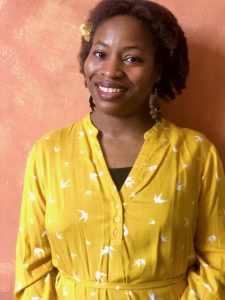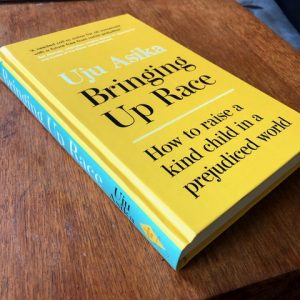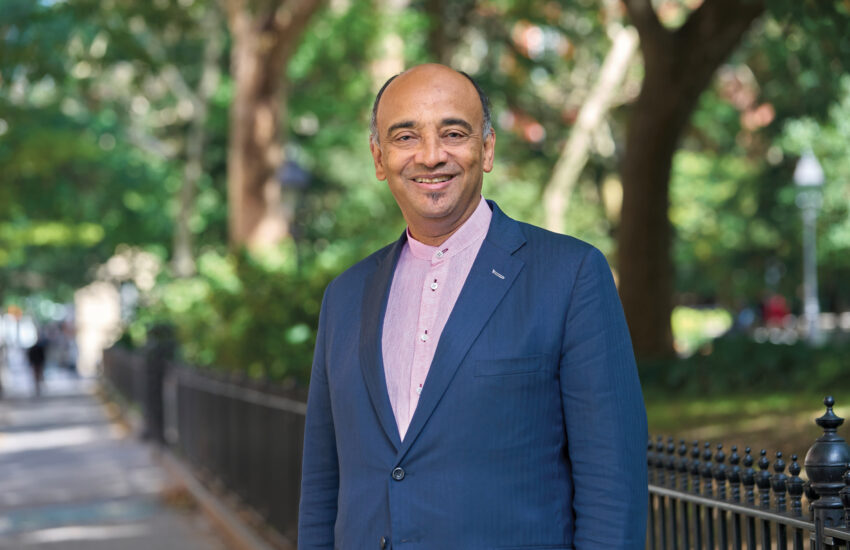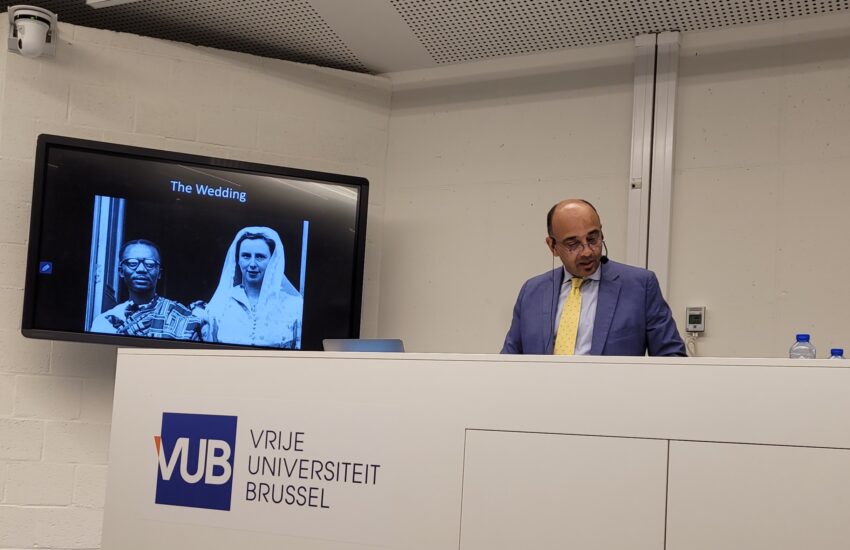An Extract from Bringing Up Race by Uju Asika
In Bringing Up Race: How to Raise a Kind Child in a Prejudiced World, author Uju Asika examines the impact of racism on children and adults, and explores how parents can raise their kids to be empathetic, inclusive and antiracist. Uju shares personal stories from her own childhood along with her experience of raising two Black boys in London and anecdotes from a range of parents. The chapters address issues from being mistaken for the nanny to raising mixed heritage children, ‘foreign’ name prejudice and colourism. Aimed at people of all ethnicities, the book includes expert insights, research and talking points to help parents have these important conversations around race, identity and diversity. Bringing Up Race has been widely praised since its launch and was selected by the Evening Standard as one of 10 Best Books for September 2020.
The following extract is from a chapter about discrimination against names that sound ‘different’ and how to encourage your child to take pride in their name.
What’s In A Name?
Raise a hand if you’ve ever sat sticky-palmed in a classroom as the register was read out? I see you. You’re steeling yourself for that pause. The inevitable swivel of heads as the teacher clears her throat and hacks your identity to pieces.
The name shaming of kids that happens in education, often by adults who should know better, deserves its own book. Author, podcaster and relationships expert Natalie Lue shared her daughter’s experience at primary school. “My eldest was called another Black girl’s name by her teacher for an entire term. Also, her surname was misspelled as ‘Sambo’ and it took a week and three separate complaints for it to be corrected.”
When your name is too much like hard work, some teachers will go as far as christening you something else for convenience. Like the French teacher who decided to call me Bijou. I didn’t mind so much when I found out it meant “jewel”. I hadn’t yet learned the term “microaggression” in primary school.
Your name is something to treasure. But you can’t be too precious about what people call you when you’re a school kid. Especially as a dark-skinned kid in a pale-skinned school.
“Uju, are you a Jew?” “Uju think you are, then?” “Uju NickoBollockoff!”
The jokes flew thick and snappy. I got off lightly, as it happens. My brother Obi has had a lifetime of “Obi Wan Kenobi?” comebacks. Innocuous enough. But his middle name Ogbogwu (Oh-bwor-goo) got him the less appealing nickname “Obi Wog.” Luckily, he was a legend on the sports fields. As a person of color with a name nobody can pronounce, it helps if you can leap tall buildings in a single bound.
Even sports stardom won’t stop people from bastardising your heritage. It grates listening to English football commentators butcher African, Latin American and even some European names. It wasn’t until I saw the name “Aya Nacho” spelled out that I realized he was actually an Igbo footballer named Iheanacho (Ee-heh-nah-chor) and not a corn snack. I insisted the boys learned to say his name correctly. And I insisted they taught the correct pronunciation to their friends. It’s a mark of respect.
If you listen right, a name can be a thing of beauty, bursting with lyricism and potential. Names have power. They are the symbols of who we are, where we come from, and in many cases, our destiny. Your name is not just your calling card; it’s your calling.
I’ve lost count of the number of Nigerians I’ve met who’ve chopped their names into something easier for Western contexts. I understand the impulse, but when I meet you, please tell me your original name and give me the chance to say it right. It’s the least we can do if we want to meet each other fully as human beings.
One of my favorite celebrity interviews featured award-winning actress Uzo Aduba of Orange is the New Blackexplaining why she never changed her name. She said her mum always told her: “If they can learn to say Tchaikovsky and Michaelangelo and Dostoyevsky, then they can learn to say Uzoamaka.” Damn right. I also loved watching actor David Oyelowo on The Tonight Show, pronouncing his name with all its Yoruba intonation.
I often think about how much happier I would have felt about my name while growing up, if I’d had more people who looked and sounded like me on film and telly screens.
Between the 1500s and 1800s, during the transatlantic slave trade, more than 12 million Africans were captured and sold as slaves to America and the Caribbean. More than 2 million died during the journey, known as the Middle Passage. Some of those who survived were renamed after their slave masters as another way to strip them of their origins. If you had no name, other than the name that owned you, soon enough you would forget where you came from. Your languages and tribes and customs would be erased. You would lose yourself completely.
Extract from Bringing Up Race: How to Raise a Kind Child in a Prejudiced World, published in September 2020 by Yellow Kite (Hachette UK).
Uju Asika is a multiple award-nominated blogger (http://babesabouttown.com), digital consultant (http://www.mothersandshakers.net) and author of the book Bringing Up Race: How to Raise a Kind Child in a Prejudiced World, published in September 2020 by Yellow Kite (Hachette UK). *London Evening Standard pick for Best Books September 2020*. Available in hardback, ebook and audiobook formats on independent bookstore hub Bookshop https://bit.ly/bookshopujuasika, Amazon UK https://amzn.to/2YomkHM and Waterstoneshttps://bit.ly/3hgyvyY. Follow Uju @babesabouttown on Twitter/Facebook/Instagram.




